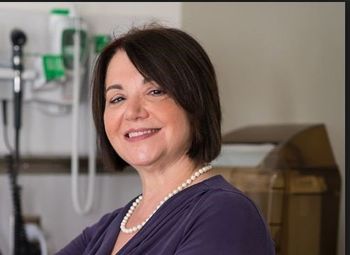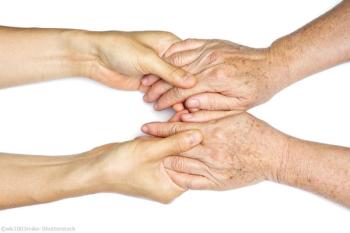
The Last-Dose-of-Chemo Blues
Some patients go through the end of treatment without a hint of emotional distress. But for many others, ending acute treatment becomes an emotional “pothole” on the cancer journey.
Her last dose of adjuvant chemo for breast cancer trickles into her vein. The nurse discontinues the IV and sticks a Band-Aid on the site.
“Congratulations!” she cheers. “You made it through! Great job! We even have a graduation certificate for you to celebrate the end of your chemo!”
It’s the same general message the woman has received from her oncologist, family, and friends. Indeed, she has anticipated this day for months.
She realizes that she still needs to get over the side effects of this chemo dose-but what an incredible milestone. She should feel jubilant.
Except she doesn’t.
What she experiences may be completely at odds with what she thought she would feel. No more chemo means...no more chemo. The sheer nastiness of the medicine must prove how incredibly powerful it is, and now that protection has been stripped away. Her oncologist and staff tell her that her prognosis is good-but the “what-ifs” haunt her.
My Experience
I had been counting the days until the end of chemo (now over 2 decades ago), and my ambivalence that last day and in the following few weeks caught me completely off guard. As happy as I was to finish chemo, I was also very scared. What was the matter with me?
Fortunately, members of my breast cancer support group began admitting to similar ambivalent feelings, including the same certainty that there must be something psychologically wrong with them for feeling that way. Sharing helped immensely, and so did learning that we were not crazy.
While not a common topic in medical journals, the issue of ambivalent emotions at the end of active treatment appears frequently in cancer survivorship literature.
For example, in her introduction to the Living Beyond Cancer program of the Cancer Survival Toolbox, Ellen Stovall, long-time president and CEO of the National Coalition for Cancer Survivorship (NCCS), talks about “putting on a happy or brave face” as staff members celebrates the last treatment:
“Were we happy and relieved to be finished with treatment? Or, anxious and afraid that we were now on our own? Were we feeling insecure about not seeing our healthcare team so often? Maybe we were feeling a combination of all these feelings. That would only be natural, since we still had questions that nobody could answer for us.”
When breast cancer survivor Marie Ennis-O’Connor wrote a post titled “
Of course, some people sail through the end of treatment without a hint of emotional distress. But for many others (including those who hide their distress behind a desperate “positive” facade), ending acute treatment becomes an emotional “pothole” on the cancer journey.
In my professional roles as oncology RN and adult nurse practitioner, I have learned that adequate preparation and honest reassurance can lessen the jolting. Patients may still feel scared-and often sad and/or angry-but do not bear the additional burden of believing they are weird or abnormal.
It’s good medicine for the oncologist and staff to recognize these feelings, and to help the patient acknowledge, name, and share them in a supportive environment. Except when misery is severe and/or prolonged (requiring psychiatric or similar help), this needn’t take a lengthy intervention.
One simple strategy is to offer sincere congratulations on the achievement, while not overplaying the joys of ending acute treatment.
Too, just as oncologists and staff routinely forewarn patients beginning treatment about its common expected side effects, they can follow a similar practice at the end of treatment: “Everyone reacts differently to ending treatment-and it’s quite common and normal for people to have mixed feelings about it, including being scared. We can help.”
Newsletter
Stay up to date on recent advances in the multidisciplinary approach to cancer.




































